Tulsa MagazineLawyer Diversity



PHONE: 918-584-5243 FAX: 918-592-0208
1446 South Boston, Tulsa, OK 74119-3612
Executive Director
Tami Williams
tamiw@tulsabar.com
Ext. 1002
Membership Director CLE, Sections & Committees
Heather Heck heatherh@tulsabar.com
Ext. 1001
Front Desk Coordinator General Inquiries
frontdesk@tulsabar.com
Ext. 1000
Accounting accounting@tulsabar.com
Lawyer Referral & Community Resource Navigator
Jeril Haug jerilh@tulsabar.com
Ext. 1003
Tulsa Lawyer Editor - Michael Taubman michael@tulsafirm.com
Associate Editor - Milly Dunlap
Tulsa Lawyer Submissions - tulsabarnews@yahoo.com
President........................................................................Philip Hixon
Past President...............................................................Kara Vincent
President-Elect............................................................Mike Esmond
Vice President......................................................Stephanie Jackson
Secretary....................................................................... Lizzie Riter
Treasurer.............................................................. Michael Taubman
Budget/Internal Operations.........................................Austin Birnie
FOUNDATION
President.................................................................Hon. Ann Keele
Foundation Vice President...........................................Justin Munn
Treasurer......................................................................Philip Hixon
Trustee.................................................................... Hon. Ann Keele
Trustee........................................................................ Justin Munn
Trustee......................................................................... Philip Hixon
Trustee...........................................................................Lizzie Riter
Trustee.......................................................................Chad McLain
Trustee ......................................................................Jim Gotwals
Trustee Catherine Hoopert
Trustee................................................................ Michael Taubman
TCBA President......................................................Philip D. Hixon
TCBA Pres. Elect.......................................................Mike Esmond
COMMITTEE CHAIRPERSONS
Access to Justice..........................................Pansy Moore-Shrier
Animal Law ..........Katy Inhofe
Bench & Bar Kevinn Matthews
Children & the Law....................................................Lizzie Riter
Children & the Law Vice Chair..........Timothy Michaels-Johnson
CLE...............................................................Pansy Moore-Shrier
Diversity......................................................Ruth Addison Martin
Fee Arbitration............................................................Gary Crews
Law Related Education / Street Law.............................Co-chairs
....................................................Pierre Robertson , Kara Vincent
Lawyer Referral .......Karen Wilkins
Membership Services....................................................Kara Pratt
Mentoring ......Shena Burgess
Military/Veterans ...Mitchell Garrett
Military/Veterans Co-Chair Hon. David Guten
Nominations & Awards ........Kara Vincent
Pro Bono............................................................... Mac Finlayson
Pro Bono Co-Chair......................................................Aaron Tifft
Professionalism................................................ ...........Rick White
Public Relations....................................................Steve Layman
Birnie
Foundation President ............................................Hon. Ann Keele Director at Large (1) Large Firm.................................Natalie Sears Director at
Social Media.................................................... ....Collaborative
Special Events .......Natalie Sears
Tulsa Lawyer Michael Taubman
Young Lawyers Division...........................................Billy Duncan
Director at Large (2) Public Sector.........................Hon. Ann Keele
ABA Delegate............................................................. Molly Aspan
OBA Delegate................................................................Rick White
Library Trustee (1)........................................................ Julie Evans
Library Trustee (2)..................................................... Kim Vojvoda
Presiding Judge .......................................... Hon. Doug Drummond
Chief Judge, U.S. District Court ...................Hon. John F. Heil, III
Chief Judge, Tulsa Municipal Court..........Hon. Gerald Hofmeister
TU Law School Student Representative ..............Taylor Williams
Law Day ................................................Hon. Martha Rupp Carter
Law Day Co-Chair....................................................Mary Clement
Community Outreach................................................ Ashley Webb
Golf Chair...................................................................Brian Keester
Scholarship Chair.......................................................Randy Lewin
Submission, Grapevine & Advertising- Visit www.tulsabar.com
Subscriptions to Tulsa Lawyer are available for $40.00 a year to those who are not Tulsa County Bar Association members or others who do not currently receive the publication. Contact tamiw@tulsabar.com
Tulsa Lawyer is a monthly publication of the TCBA. The TCBA does not necessarily share or endorse the opinions expressed in the materials published. The views are those of thoughtful contributors. Similarly, advertising does not imply endorsement by the TCBA of products or services or any statements concerning them.
SECTION CHAIRPERSONS
ADR/Mediation..........................................................Melissa Fell
ADR/Mediation Co-Chair................................ ....Lauren Lindsey
Bankruptcy Hon. Paul Thomas
Business/Corporate......................................Whitney Humphreys
Criminal Law ........Daniel Levy
Energy & Mineral Law...........................................Buford Pollett
Employment Law............................................. ....Jonathan Shook
Family Law ..Jordan Dalgleish
Health Law ......Brenna Wiebe
Juvenile Law.................................................... ..........Lizzie Riter
Juvenile Law Co-Chair.......................Timothy Michaels-Johnson
Litigation...............................................................Mark A. Smith
Litigation Co-Chair......................................Mbilike Mwafulirwa
Municipal Law............................................................Cassia Carr
Paralegals/Legal Assistant....................................Kathryn Keener
Paralegal /Legal Assistants Vice Chair.....................Gloria Jones
Probate/Estate/Elder.......................................................Co-chairs
................................Kelly Hunt, Phillip Jennings, John Gotwals
Solo/Small Firm .............................................Colton Richardson
Tax...........................................................................John Gotwals
Technology ...................................................Pansy Moore-Shrier Workers Comp.........................................................Valerie Evans
* Section Chairs will be updated as positions are filled
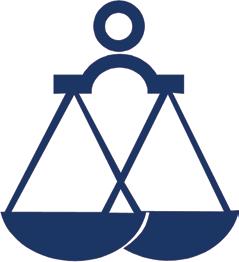 By Hon. Phyllis D. Thompson, Associate Judge on the District of Columbia Court of Appeals
By Hon. Phyllis D. Thompson, Associate Judge on the District of Columbia Court of Appeals
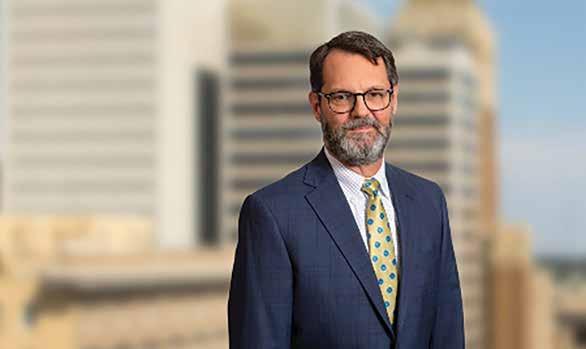
The June issue of the Tulsa Lawyer is devoted to “diversity” issues. The online Merriam-Webster Dictionary (https://www.merriam-webster.com/ dictionary/diversity) defines the word “diversity” as “the condition of having or being composed of differing elements: VARIETY: especially: the inclusion of people of different races … cultures, etc. in a group or organization.” Notwithstanding the relatively mundane definition, the word is potentially loaded, meaning a myriad of different things to different people—such as the diverse group of people who belong to this Association.
I won’t pretend that I am remotely qualified to expound on any of those meanings. However, I will defer to the past wisdom of two patriots and pillars in the movement to ensure that the diverse population in this country has an equal opportunity to attain personal goals and aspirations under the principles espoused in the Declaration of Independence and the United States Constitution.
First, Martin Luther King, Jr., in the famous line from his I Have a Dream speech, directs us “to a day when people will not be judged by the color of their skin, but by the content of their character.” Reverend King’s vision, a leveling of the playing field as it were, comports so well with the rule of law that the Association celebrated during last month’s observance of Law Day.
Second, Abraham Lincoln reminds us with his Second Inaugural Address of the significant price the country has paid toward achievement of the high ideals in the country’s founding documents and the work that remains to be done. (The Second Inaugural Address is inscribed on the walls of the Lincoln Memorial where, notably, Reverend King shared his dream.) The following quote is the final two paragraphs of Mr. Lincoln’s speech:
One-eighth of the whole population were colored slaves, not distributed generally over the Union, but localized in the southern part of it. These slaves constituted a peculiar and powerful interest. All knew that this
interest was somehow the cause of the war. To strengthen, perpetuate, and extend this interest was the object for which the insurgents would rend the Union even by war, while the Government claimed no right to do more than to restrict the territorial enlargement of it. Neither party expected for the war the magnitude or the duration which it has already attained. Neither anticipated that the cause of the conflict might cease with or even before the conflict itself should cease. Each looked for an easier triumph, and a result less fundamental and astounding. Both read the same Bible and pray to the same God, and each invokes His aid against the other. It may seem strange that any men should dare to ask a just God’s assistance in wringing their bread from the sweat of other men’s faces, but let us judge not, that we be not judged. The prayers of both could not be answered. That of neither has been answered fully. The Almighty has His own purposes. “Woe unto the world because of offenses; for it must needs be that offenses come, but woe to that man by whom the offense cometh.” If we shall suppose that American slavery is one of those offenses which, in the providence of God, must needs come, but which, having continued through His appointed time, He now wills to remove, and that He gives to both North and South this terrible war as the woe due to those by whom the offense came, shall we discern therein any departure from those divine attributes which the believers in a living God always ascribe to Him? Fondly do we hope, fervently do we pray, that this mighty scourge of war may speedily pass away. Yet, if
God wills that it continue until all the wealth piled by the bondsman’s two hundred and fifty years of unrequited toil shall be sunk, and until every drop of blood drawn with the lash shall be paid by another drawn with the sword, as was said three thousand years ago, so still it must be said “the judgments of the Lord are true and righteous altogether.”
With malice toward none, with charity for all, with firmness in the right as God gives us to see the right, let us strive on to finish the work we are in, to bind up the nation’s wounds, to care for him who shall have borne the battle and for his widow and his orphan, to do all which may achieve and cherish a just and lasting peace among ourselves and with all nations.
(https://constitutioncenter.org/the-constitution/historicdocument-library/detail/abraham-lincoln-secondinaugural-address-1865).

Whatever meaning you may attribute to the word “diversity,” you will do well to take into consideration the past wisdom of Reverend King and Mr. Lincoln. “With malice toward none, with charity for all,” take care until next month.
 Philip D . Hixon TCBA President, 2022-2023
Philip D . Hixon TCBA President, 2022-2023
Library Trustee: Kim Vojvoda
Director at Large, Large Firm: C. Austin Birnie

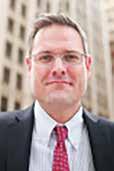
Director at Large, Med Firm: Jennifer L. Struble
Director at Large, Sm Firm: Linda Morrissey
Incumbents (serving 2nd year of term)
Library Trustee: Julie Evans
Director at Large, Public Sector: Hon. Ann Keele
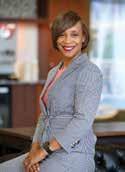
Director at Large, Large Firm: Natalie Sears
Director at Large, Med. Firm: Kara Pratt
Director at Large, Sm. Firm: Mark A. Smith
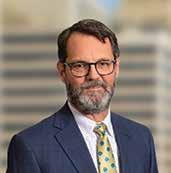

OBA Delegates (2 year term)
Stacy Acord
Christopher Uric Brecht
Michael Esmond
D. Mitchell Garrett, Jr.
Scott B. Goode
James R. Gotwals
Sabah Khalaf
Kimberly K. Moore
Linda Morrissey
Justin B. Munn
Barrett L. Powers
Deborah A. Reed
Pierre D. Robertson
Morgan Smith
Ashley R. Webb
ABA Delegate: Molly Aspan
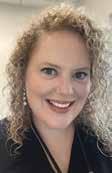 President Michael Esmond
President Elect Stephanie R. Jackson
Past President
Philip D. Hixon
Vice President
Michael P. Taubman
Secretary Lizzie Riter
Treasurer C. Austin Birnie
President Michael Esmond
President Elect Stephanie R. Jackson
Past President
Philip D. Hixon
Vice President
Michael P. Taubman
Secretary Lizzie Riter
Treasurer C. Austin Birnie

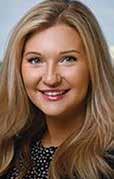
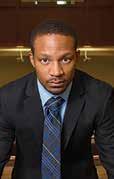
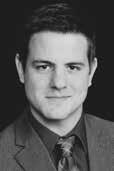
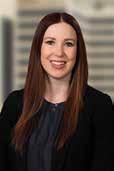
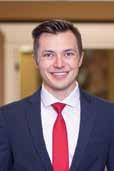
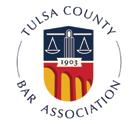 President Colton Richardson
President Elect Lacy Pulliam
Vice President Kyle M. Trice
Treasurer Pierre Robertson
Secretary Kaia Kennedy
President Colton Richardson
President Elect Lacy Pulliam
Vice President Kyle M. Trice
Treasurer Pierre Robertson
Secretary Kaia Kennedy
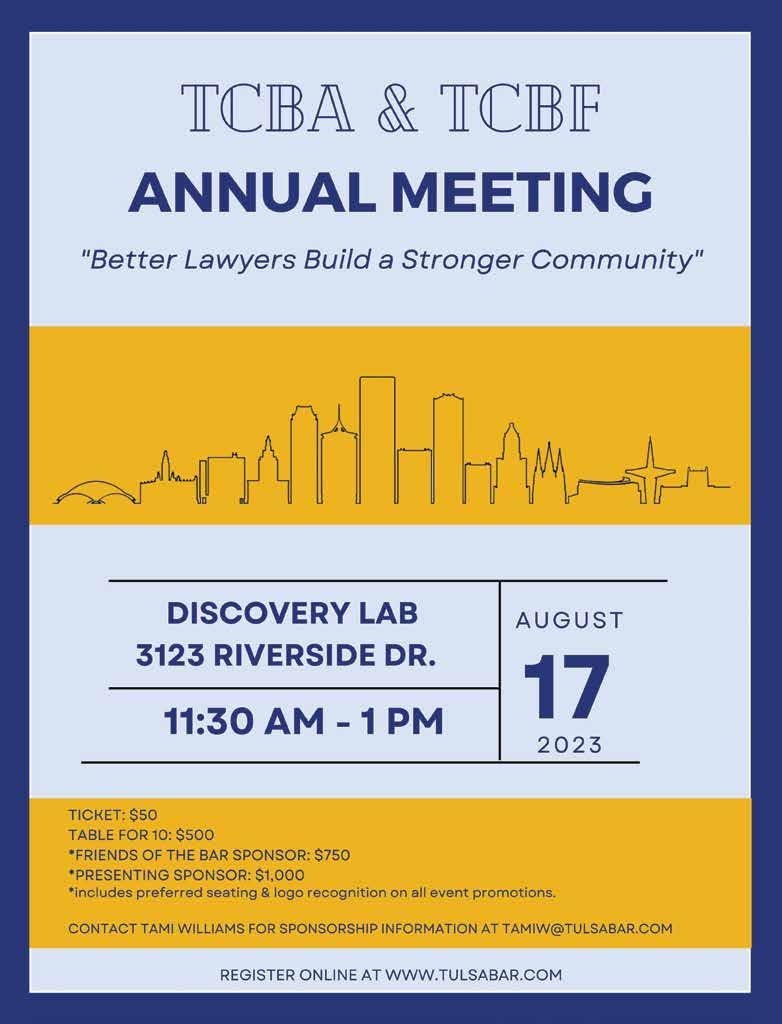
Thursday, May 11th, was the Law Day - Student Art & Writing Contest Reception. Congratulations to all state and local bar contest winners. Below are the winners of the TCBA contest.


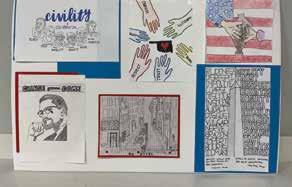
Pre-K - Mattis Bratt (Northeast Elementary School (Owasso) - Chelsey Fulton)
Kindergarten - Rone Bratt (Northeast Elementary School - Jennifer Tooley)
3rd Grade - Jack Kauffman (Regent Preparatory School - K. Mosser)
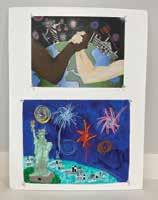
4th Grade - Luke Kauffman (Regent Preparatory School - K. Mosser)
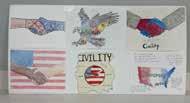
9th Grade - Liza Herndon (Mingo Valley Christian School - Rachel Keeney)
11th Grade - Jane Ray (Mingo Valley Christian School - Rachel Keeney)
12th Grade - Lydia Houpe (Mingo Valley Christian School - Rachel Keeney)
6th Grade - (tie for Winner) - Westin Marshall (Newman Middle School - Joleen Steffens)
6th Grade - (tie for Winner) - Lillian Goodner (Newman Middle School - Joleen Steffens)

9th Grade - Grace Turner (Mingo Valley Christian School - Rachel Keeney)
10th Grade - Braden Gorton (Skiatook High School - Keith Denslow)
11th Grade - Presley Ringling (Mingo Valley Christian School - Rachel Keeney)
12th Grade - (tie for Winner) Gabe Thomas (Mingo Valley Christian School - Rachel Keeney)
12th Grade - (tie for Winner) - Miriam Lowe (Mingo Valley Christian School - Rachel Keeney)

1: capitalized G & R: a rule of ethical conduct: do to others as you would have them do to you
2: a guiding principle
The TCBA is pleased to announce that Mark Schwebke is the Golden Rule Award winner for the third quarter.
Mark has been integral to the Foundation’s Law Day efforts for over a decade. Not only does he serve as a volunteer for Ask-a-Lawyer, but he also volunteers for the entire 12 hours every year. He also assists with the committee’s mock trial efforts and often serves as a judge for the OBA
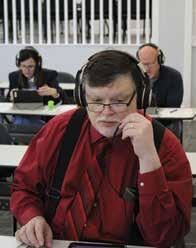
state mock trial competitions. One claim to fame is that he presided over ten mock trials during a six-week period.
Mark has spent the last 15 years serving as an associate judge for Tulsa Municipal Court and is known as the judge the city can call in any emergency. He is known for his calm demeanor and strong ethics.
Please see page 16 for an important Award Nominations Notice

The Golden Rule award is given to lawyers who make outstanding contributions to their professions, have the highest of ideals, and are willing to mentor to those with less experience. Criteria for Award:

1. Recognizes the ethical and professional obligations as an officer of the court, as well as the spirit and intent of the Rules of Professional Conduct.
2. Practices ethically and honestly and is true to his/her word.
3. Strives for the traditional goals of moral excellence.
4. Exhibits the highest standards of fairness and integrity.
5. Sets a model example for conduct with members of the Bar and the Judiciary, not only by words but more importantly deeds.
6. Is civil, courteous and respectful towards the court and his/ her opponents.
7. Is loyal to his/her client without trickery and deception and without using abusive practices or misleading the court or opposing counsel.

8. Avoids the temptation to make his/her client’s case into a personal vendetta.
9. Conducts himself/herself in a manner that improves the image of the legal profession in the eyes of the public.


The TCBF Golf Committee would like to first offer a massive thank you to every individual and organization that supported the 2023 TCBF Annual Charity Golf Tournament, whether it be through volunteers, sponsorships, playing in the tournament, or buying raffle tickets. It was a successful tournament because of your participation. The tournament took place on Monday, May 8, 2023, at Forest Ridge Country Club. It was a beautiful day and a wonderful event. When it comes to players, we had 126 individuals play out of 126 individuals signed up. It was the biggest tournament we’ve had in recent years. After all expenses, we raised over $20,000 for our designated charities. This is a fantastic number.
We would like to recognize and extend a special thanks to our Eagle and Birdie Sponsors:
Eagle - $2500
Graves McLain
Crowe & Dunlevy
FIRSTAR Bank
Regional Hyundai
Mazzio’s
Richards & Connor
Birdie - $1500
Moyers Martin
Barrow & Grimm
Opveon
To announce our winners… drum roll, please!!
1st Place: Alliance Machine Service Inc
Jeff Sparks, Matt Herring, Travis Phelan, and Cole Stephenson
2nd Place: FIRSTAR Bank
Ryan Yates, Mac Keely, Peter McAdams, and Jacob Sanders
3rd Place: Franden Farris Quillin Goodnight
Roberts + Ward
Garrett McCain, Adam Rhodes, Jeremy Ward, Phillip Wilson
Hole 6 - Closest to the Pin: Colton Richardson
Hole 9 - Longest Drive: Cole Stephenson
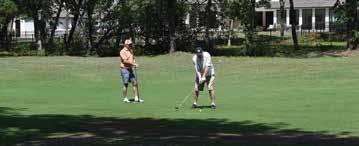

Hole 16 - Closest to the Pin: Michael Putzke

If I failed to acknowledge anyone specifically, please know that your participation and assistance was greatly appreciated.
Additionally, I want to personally offer a big thank you to every single person involved. It was a great pleasure serving as the chair of this charity event because of our legal community. Tami Williams and Heather Heck of the bar center also deserve a special thank you. We look forward to another GREAT tournament in 2024 & hope to have all your support again!! Go low.
Sincerely,
Brian M. Keester, Chair






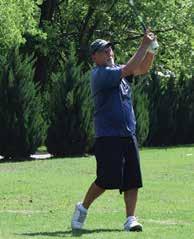






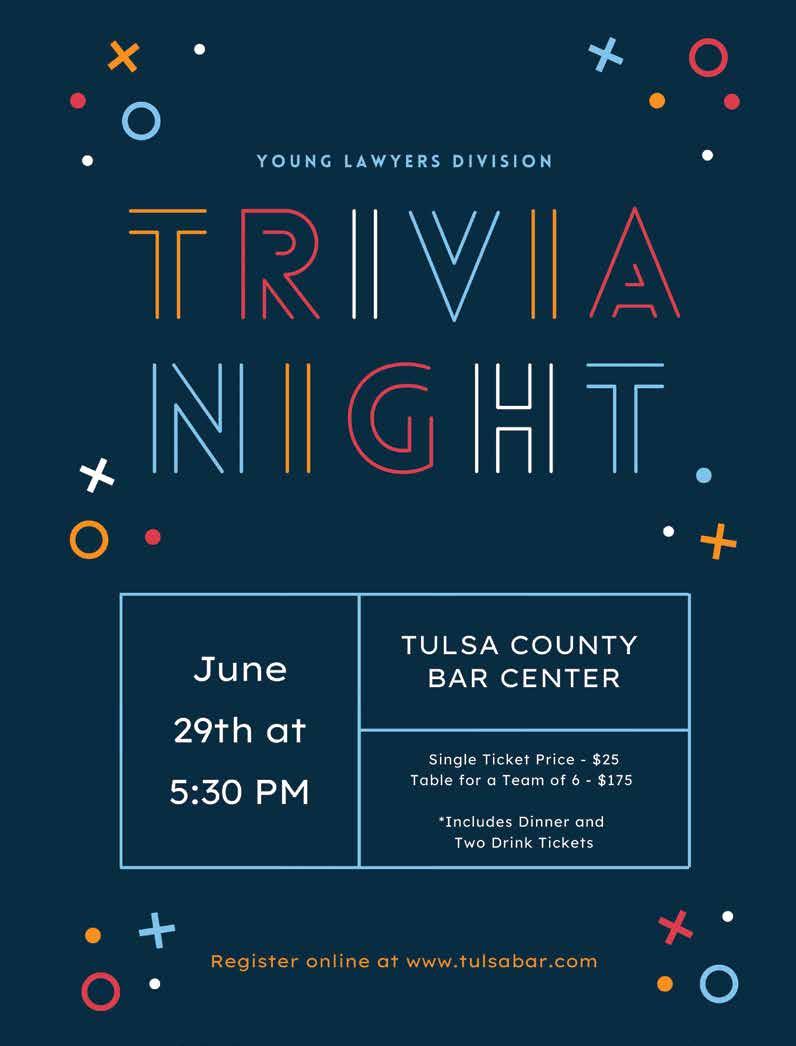

Tulsa Meetings are held 5:30-6:30 p.m. on the second Thursday of each month at the office of Scott Goode, 1437 S. Boulder Ave., Ste. 1200, Tulsa. scottbgoode@gmail.com

Meeting Dates: May 11, June 8, July 13, Aug. 19, Sept. 14.
Oklahoma City Meetings are held 6-7:30 p.m., Visit okbar.org for dates or email debraj@okbar.org. In-person meetings in Oklahoma City are held at the office of Tom Cummings, 701 NW 13th St., Oklahoma City. The group will also meet virtually at the same time using BlueJeans. Email debraj@okbar.org for login information.
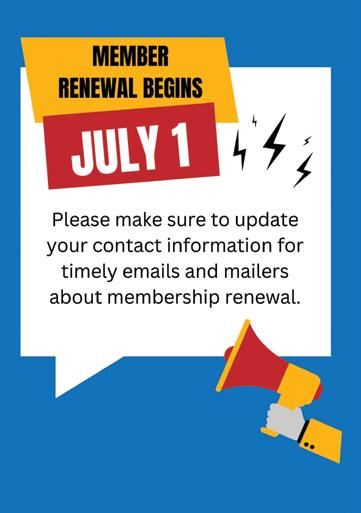
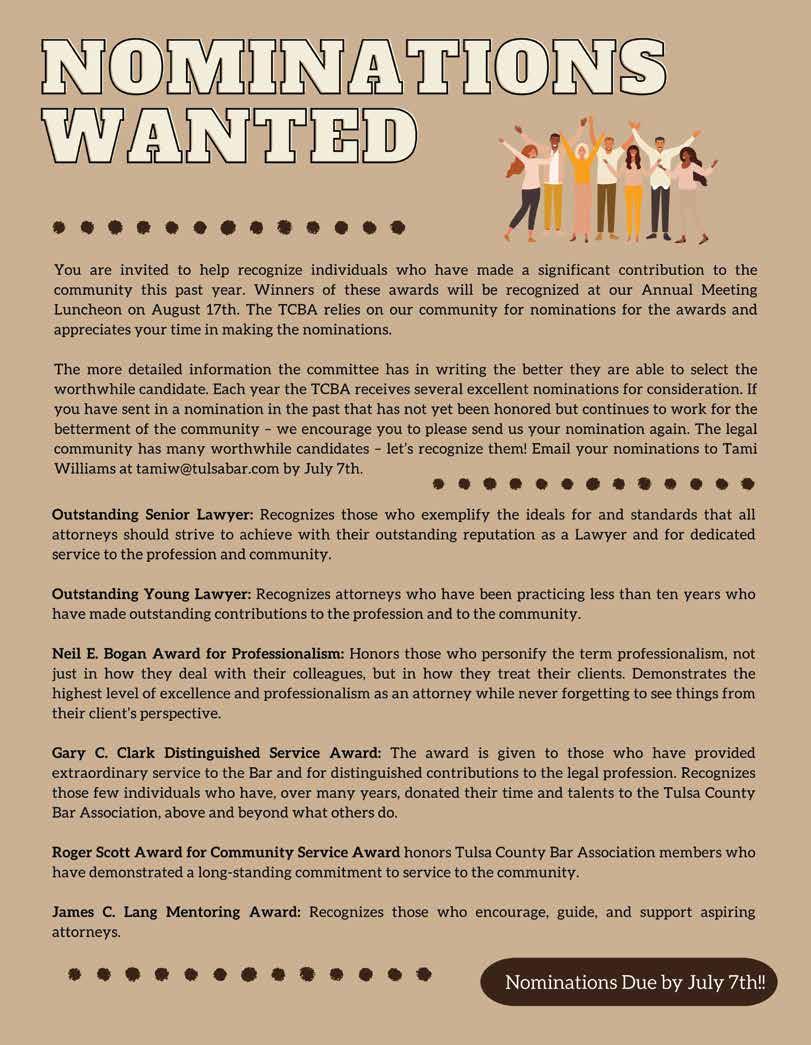
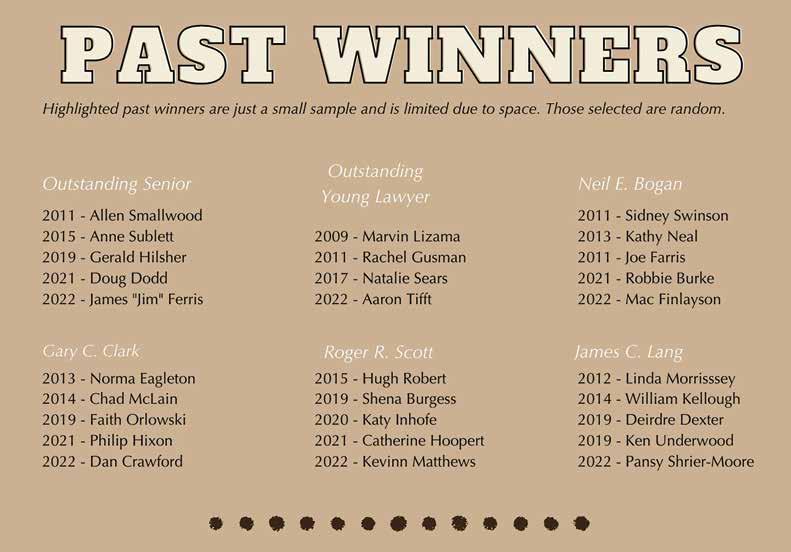
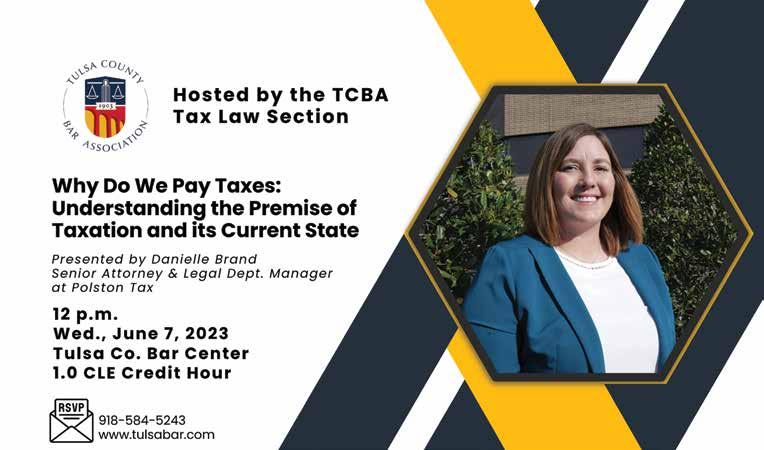
I am reminded of the immortal lines in PATTON when George C. Scott said, “We are advancing constantly, and we’re not interested in (just) holding on to anything.” This sentiment fully embraces the OBA’s philosophy in assisting the public with a fundamentally new approach to the ASK-A-LAWYER (AAL) Program.
First, some history to put this in perspective. The luxury and privilege of participating in Tulsa’s AAL program for 34 consecutive years has given me the opportunity for observations otherwise not apparent or available to one-time volunteers. There was a time (30 years ago) when Tulsa would have 20 phone lines open for AAL; all of them would be busy constantly during the day. (I recall first being assigned to phone #17.)
The old OETA studio on North Sheridan was in some ways a time capsule for the mid-20th century. Analog phones with mechanical switches on the wall constantly ‘clacking’ as calls would come in reminded me of something out of the 1950’s. While we enjoyed the cooperation and help of the OETA for over 30 years, we could see that ‘times were indeed a-changing.’
As the person responsible for preparing the final report to the OBA yearly, I had the unfortunate opportunity to watch our call count drop from over 1000 calls per the 12-hour program to less than 1000 calls for the first time. (Around 15-18 years ago) In subsequent years, I watched the count drop to 900, 800, 700, etc., all the way to barely over 250 calls per program.
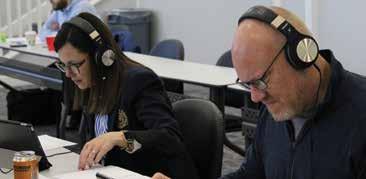
Something had to be done for this program to survive. New technology combined with a bold new vision came together in 2022. No longer would we be beholden to the OETA for location, phones, phone lines and advertising. The TCBA proposed a radical departure from the past. The TCBA Bar Center would ‘host’ the program here with our own VOIP protocol iPads, headphones and inline microphones.
The money saved by severing our relationship with the OETA allowed funding to not only buy the equipment needed, but also pursue an aggressive marketing campaign. In 2022, this new program launched with 8 ‘phones’ available here in Tulsa. We saw a basic 60%
increase in calls as compared to 2021. While elated with this significant improvement in just one year, we were convinced that further progress could and would be made.
Fast forward to 2023. On May 1st, we had 10 lines open for the first time in well over 15 years. As the phones would ring sequentially, phone #1 would get the first calls, with phone #10 getting the last calls. I positioned myself on phone #10 so I could observe how busy the first 9 phones would be throughout the day. What happened instead was that my phone (#10) rang constantly throughout the day without so much a 1-2 second break between calls!
Every phone was literally busy all 12 hours nonstop without a break of a few seconds in between calls! I am convinced that 15 phone lines would have been just as busy had we had that many. There were calls we could not get to due to more demand than we had supply for!
Some of you may be asking, ‘what’s the point’ of all this information from me. The point is we can return the AAL program to the success we once enjoyed decades ago by answering 1000 calls or more again in a single day!
The 2023 final report for Tulsa’s AAL program showed an 84% increase in calls from 2022. (Remember that 2022 showed a 60% increase from 2021) This is why I repeat:
WE ARE ADVANCING CONSTANTLY AND WE’RE NOT INTERESTED IN HOLDING ON TO ANYTHING!
Dan Crawford, Chair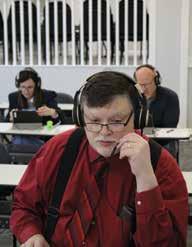




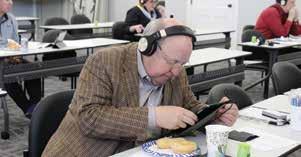
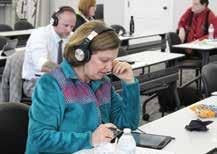
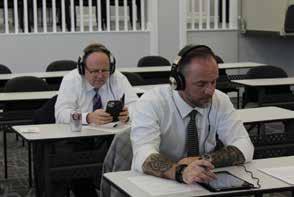


These four volunteers worked the entire 12-hour event :
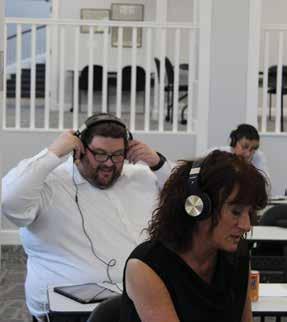
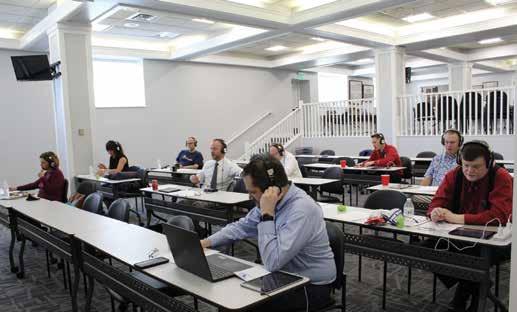
Dan Crawford
Mark Schwebke
Ed Wunch
Emma Arnett
Volunteers :
Bryan Swenson
Bob Redemann
Beth Ann Childs
Joy Thorpe
Marney Hill
Gary Crews
Michon Hughes
Mary Bundren
Kirsten Bernhardt
Blaine Frierson
Valerie Blackstock
Sheila Naifeh
Scott Goode
Howard Berkson
Herb Elias
Ben Fu
Ed Lindsey
Nancy Rothman
Alex Master
Ben Aycock
Sarah Schmook
Althea Adkisson
Briah Bennett
Extra THANKS to Fletch the Scottie Dog for spending the day with us. Fletch is Emma Arnett's fur baby.

Jacklynn Hoplight
Blake Johnson
Matt Gomez
Clark Bushyhead
Lindsey Bushyhead
Chuck Parrish
Joe Bohannon
Tana Van Cleave
Mary Rounds
Ken Brune
Martha Rupp Carter
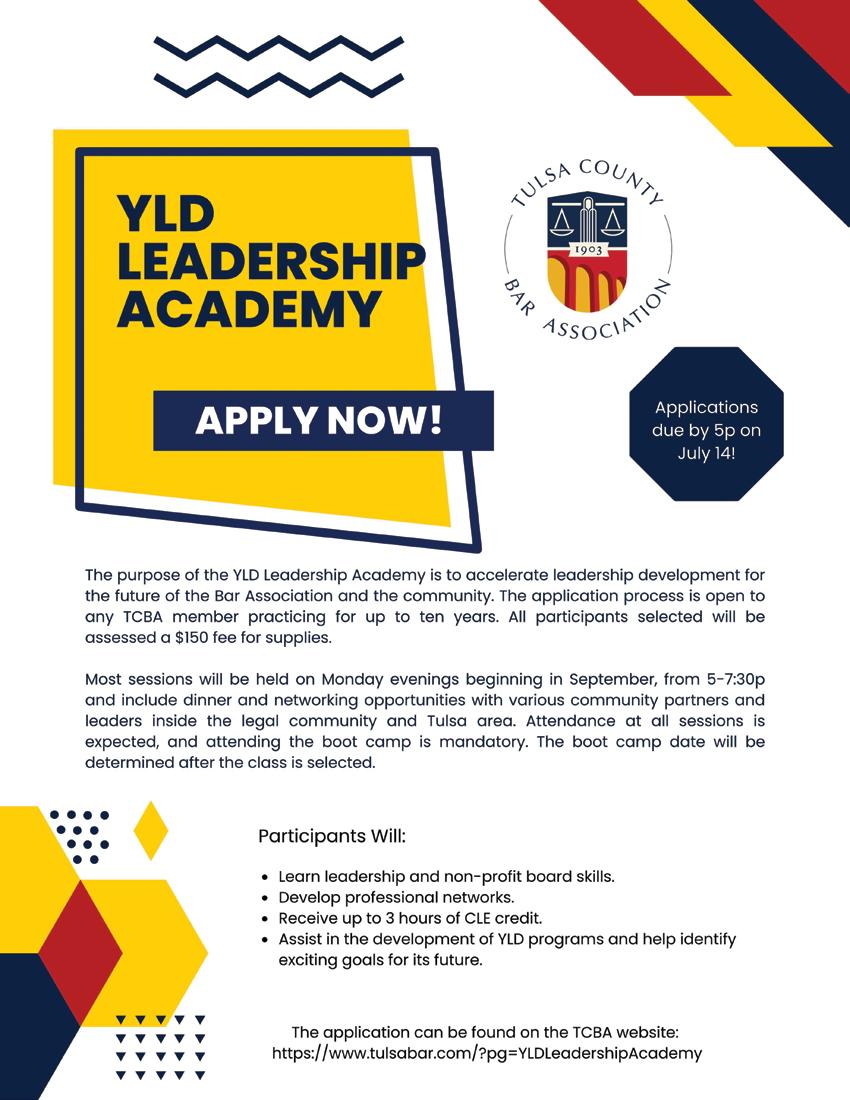
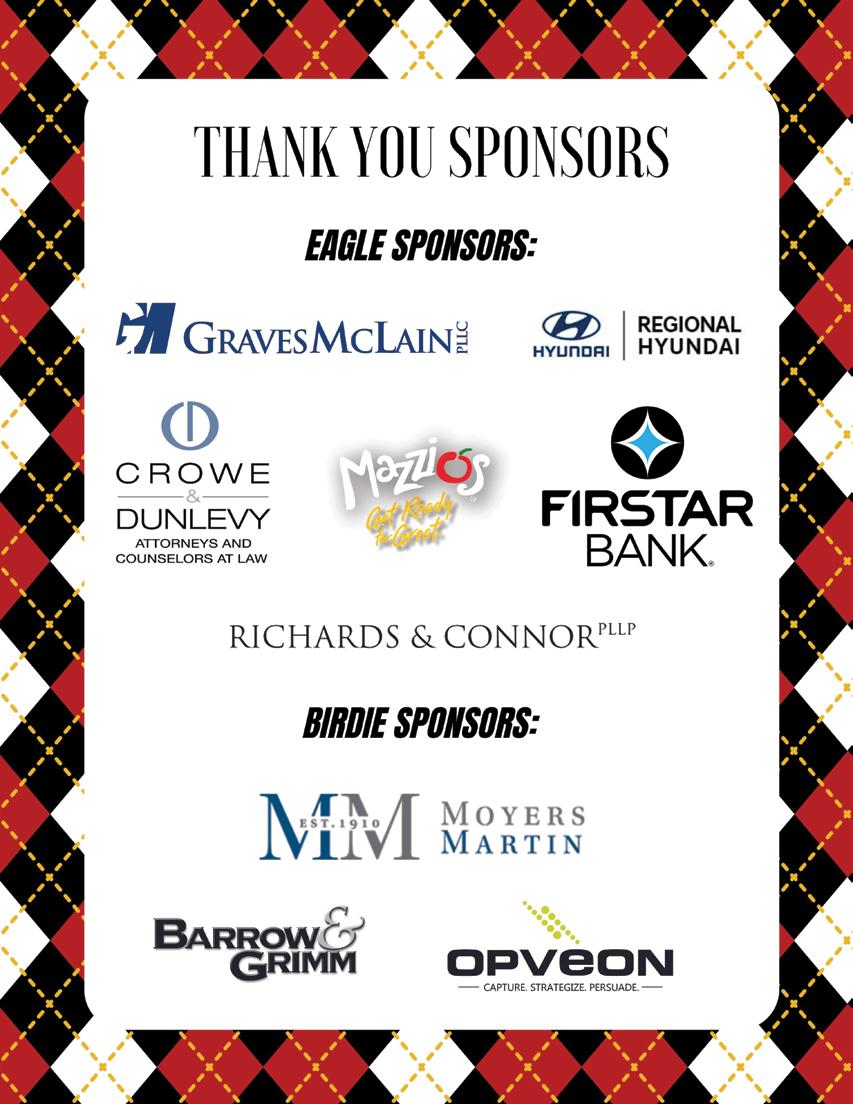
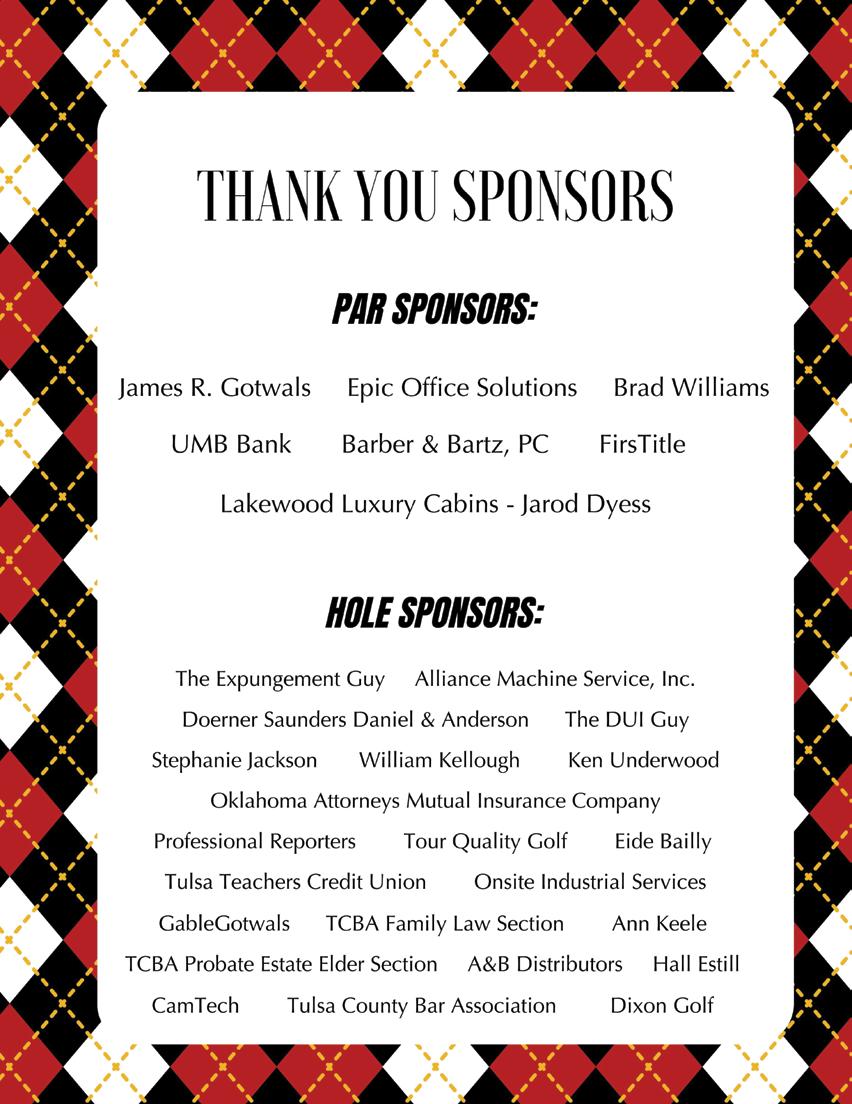
(This article originally appeared in The Bar Examiner print edition, Fall 2020 (Vol. 89, No. 1), pp. 65–67, as part of a column featuring a series of articles on topics of immediate significance to the bar admissions community Reprinted with permission from The Bar Examiner by the TCBA)
A couple of years ago at an NCBE Annual Bar Admissions Conference, I had a conversation with one of my fellow attendees who, like me, had just heard a presentation about the underrepresentation of minority groups in the legal profession. I commented that the numbers indicated that we hadn’t made much progress toward a racially and ethnically diverse legal profession. My fellow attendee, a bar examiner, agreed with my assessment but also questioned the need for bar examiners to be concerned about racial, ethnic, or other types of diversity among lawyers. I thought that was a fair question. In this article, I offer four key points to convey what I think are some of the answers.
representative of the diverse community that it serves” (focusing on disability diversity).4 In 2009, the CCJ explained more fully that courts “should better mirror the racial and ethnic make-up of the communities they serve” in order to foster “confidence in the courts and the judicial process.”5
profession
to public trust and confidence in the legal system that bar admission authorities serve.
The bar admissions community—both state bar admission authorities and NCBE in its role of providing services to those authorities—exists to support and assist the states’ highest courts in carrying out their goals and responsibilities with respect to regulating the legal profession within their jurisdictions. It is therefore important to recognize that, through the Conference of Chief Justices (CCJ),2 the states’ highest courts have adopted a number of resolutions that highlight and explain the importance of diversity in the legal profession.
For example, in 2020, the CCJ expressed its encouragement and support of efforts “to improve the racial and ethnic diversity of the bench, law clerks, and court staff, as well as the legal community.”3 In 2012, the CCJ resolved that “the court system should be
Conversely, as one writer has observed, “[t]he very legitimacy of a legal system is challenged” when it “features systematic under-representation of minorities who are expected to buy into and respect the law[,]”6 but who perceive that the system is not fair and equal. To state the point differently, “[w]ithout a diverse bench and bar, the rule of law is weakened as the people see and come to distrust their exclusion from the mechanisms of justice.”7
These comments implicate not just judicial officers, but members of the legal profession more broadly, because members of the bar function as officers of the courts, who assist in the administration of justice. Fostering a more diverse legal profession—one that in turn will produce a judiciary and bar that look like the communities they serve—is a critical part of building and maintaining public trust and confidence in the legal system.
Accordingly, diversity in the legal profession must be a priority, and it is the responsibility of the bar admissions community to make constant efforts to ensure that all aspects of the bar admissions process are fair, to be on guard against impediments to entry into the legal profession that may exist on a basis related to race or ethnicity, and to work to advance greater inclusion of underrepresented groups in the profession.
2. Diversity in the legal profession is critical for access to justice.
The CCJ has also affirmed that “the Judicial Branch has the primary leadership responsibility to ensure access” to justice for individuals and families.8 As one writer has aptly observed, diversity in the legal profession “is intimately related to access to lawyers and justice and to the quality of representation of the under-privileged.”9
This is not to suggest that only lawyers who are from underrepresented groups can or will represent others who are from underrepresented groups or are the only ones who can do so effectively; all lawyers, whether or not they come from historically underrepresented groups themselves, can and should learn to be culturally competent (meaning, in part, sensitive to potential differences between people from different backgrounds).
But to the extent that a background of shared experiences, perspectives, or language enables lawyers to better communicate with their clients, to understand better the clients’ circumstances and goals, to gain the trust
of and inspire confidence in clients, and to empathize with clients, both the availability and quality of legal representation and the efficacy of legal problem solving are likely to improve. For that reason, too, states’ highest courts should require their bar admissions arms to promote a diverse legal profession that will assist the courts in carrying out their responsibility to lead accessto-justice efforts.
3. Diversity in the legal profession is a critical component of bar admission authorities’ mission of protecting the public.
Protection of the public is the raison d’être of bar admission authorities. They administer the bar examination to ensure that lawyers have the minimum competence necessary to practice as licensed attorneys, and they conduct background checks to ensure that newly licensed lawyers will be fit, including mentally and emotionally fit, to be trusted with client matters.
As the CCJ has recognized, lawyers’ continued competence and fitness to practice law is in part a function of lawyer well-being. In a 2017 resolution, for

instance, the CCJ recommended that the states’ highest courts heed the report of the National Task Force on Lawyer Well-Being.10 That task force report explains that “well-being is an indispensable part of a lawyer’s duty of competence”11 and that a significant contributor to lawyer well-being is “a sense of organizational belongingness.”12
The task force report goes on to state that a lack of diversity among lawyer colleagues and the corresponding “weak sense of belonging” is “strongly associated with depressive symptoms,” which can interfere with the lawyers’ ability to practice law responsibly and ethically.13
In a very real sense, then, fostering diversity in the legal profession is a tool toward fostering the lawyer wellbeing that can be critical for protection of clients.
Entrants to the legal profession take an oath to uphold the Constitution, including its guarantee of equal protection of the laws. To the extent that the relative lack of diversity in the legal profession reflects past discrimination and bias—that is, reflects the unequal protection of the laws—the bar admissions community, which effectively acts as a gatekeeper to the profession, has to be attentive to and concerned about what the data show.
We must be concerned, for example, if factors that may be the vestiges of discrimination and historical unequal protection of the laws—such as large disparities in family wealth or opportunity—impact the ability of law graduates to devote the time they need to study for the bar exam, adversely affect performance on standardized tests, or impede individuals from even envisioning themselves as members of the legal profession. To fail to make efforts to promote diversity among entrants into the legal profession is to ignore a fundamental value of the profession whose integrity is the entire rationale for the work that the bar admissions community does.14
For all these reasons, I think it is fair to say that being concerned to advance racial, ethnic, and other types of diversity among lawyers is an essential part of the responsibilities of the bar admissions community.
Judge Phyllis D. Thompson has been an Associate Judge on the District of Columbia Court of Appeals since 2006. She was the first African American woman partner in the law firm of Covington & Burling LLP. Thompson is a member of the NCBE Board of Trustees and chairs its Diversity and Inclusion Committee. She is also a member of the Council of the ABA Section of Legal Education and Admissions to the Bar.
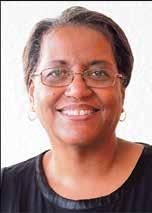
1. The author acknowledges the input of the NCBE Diversity and Inclusion Committee in writing this article. The purpose of the Diversity and Inclusion Committee is to recommend policies and initiatives through which NCBE can enhance the participation and performance of historically disadvantaged groups with respect to legal education and bar admissions, including bar passage; to assist the Board of Trustees in remaining sensitive and responsive to diversity issues in the provision of programs and services; and to promote diversity of presenters and participants at NCBE educational programs and on NCBE’s committees, task forces, boards, and staff.
2. The Conference of Chief Justices includes representatives of the courts of all 50 states, the District of Columbia, and the nation’s territories (American Samoa, Guam, Northern Mariana Islands, Puerto Rico, and the US Virgin Islands). See https://ccj.ncsc.org/
3. Conference of Chief Justices, Conference of State Court Administrators, Resolution 1, In Support of Racial Equity and Justice for All (2020), available at https://ccj.ncsc. org/__data/assets/pdf_file/0029/42869/07302020Racial-Equality-and-Justice-for-All.pdf.
4. Conference of Chief Justices, Resolution 13, In Support of Disability Diversity in the Legal Profession (2012), available at https://ccj.ncsc.org/__data/assets/pdf_ file/0015/23541/07252012-access-justice-disabilitydiversity-legal-profession.pdf.
5. Conference of Chief Justices, Resolution 6, In Support of Diversity of Judicial Law Clerks Working for State Court Judges (2009), available at https://ccj.ncsc.
org/__data/assets/pdf_file/0015/23730/01282009-insupport-of-diversity-of-judicial-law-clerks-working-forstate-court-judges.pdf.
6. Eli Wald, “A Primer on Diversity, Discrimination, and Equality in the Legal Profession or Who Is Responsible for Pursuing Diversity and Why,” 24 Geo. J. Legal Ethics (Fall 2011) 1079, 1103 (hereafter “Wald”).
7. American Bar Association, Presidential Diversity Initiative, Diversity in the Legal Profession: The Next Steps (Apr. 2010) at 9.
8. Conference of Chief Justices, Conference of State Court Administrators, Resolution 5, Reaffirming the Commitment to Meaningful Access to Justice for All (2015), available at https://ccj.ncsc.org/__data/ assets/pdf_file/0013/23602/07252015-reaffirmingcommitment-meaningful-access-to-justice-for-all.pdf.
9. Wald, supra note 6, at 1102.
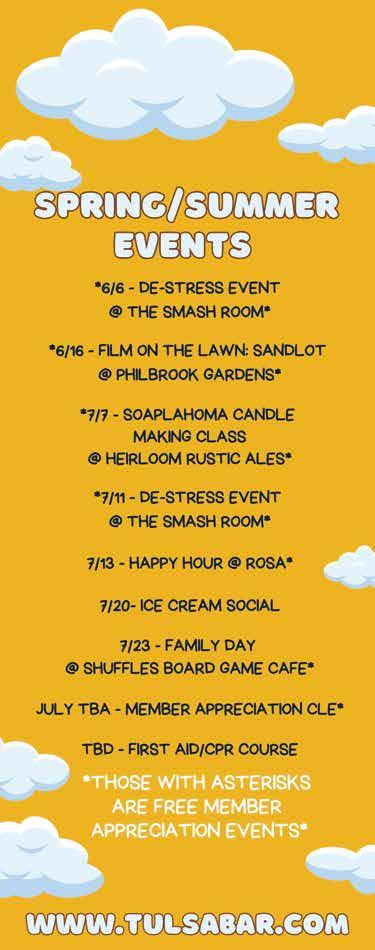
10. Conference of Chief Justices, Resolution 6, Recommending Consideration of the Report of the National Task Force on Lawyer Well-Being (2017) (stating that “supporting lawyer well-being … enhances lawyer ethics and professionalism”), available at https://ccj.ncsc.org/__data/assets/ pdf_file/0023/23684/08092017-recommendingconsideration-report-national-task-force-lawyer-wellbeing.pdf.
11. The Report of the National Task Force on Lawyer Well-Being, The Path to Lawyer Well-Being: Practical Recommendations for Positive Change (2017), at 10, available at https://lawyerwellbeing.net/wp-content/ uploads/2017/11/Lawyer-Wellbeing-Report.pdf. (See also James C. Coyle, “The Report of the National Task Force on Lawyer Well-Being and the Role of the Bar Admissions Community in the Lawyer Well-Being Movement,” 87(2) The Bar Examiner (Summer 2018) 8–16.)
12. Id. at 16.
13. Id. (recommending that “all stakeholders urgently prioritize diversity and inclusion”).
14. Professor Wald makes these points eloquently. He writes: “[T]o the extent that minority underrepresentation is caused by inequalities, past and structural discrimination, lack of diversity undermines the very meaning of law and of what it means to be a lawyer in the United States. … [A] definition of lawyers as professionals must inherently include a commitment to advancing equality under the law, and, therefore, to fighting under-representation and promoting diversity.” Wald, supra note 6, at 1101–02. Wald concludes that underrepresentation simply is “unacceptable in the legal profession.” Id. at 1142.

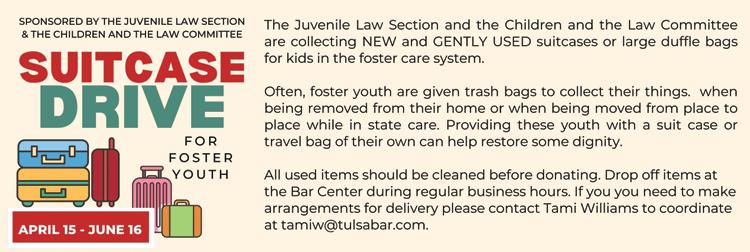

“We can help make the world safe for diversity. For, in the final analysis, our most basic common link is that we all inhabit this small planet. We all breathe the same air. We all cherish our children’s future. And we are all mortal.”
~ John F. Kennedy, Commencement Address at American University, Washington, D.C., 10 June 1963
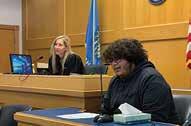
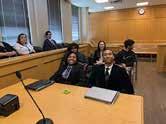
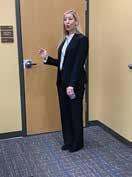

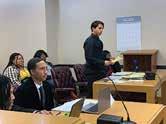
KIPP high school students from the Street Law program participated in the Gold E. Locks Mock Trial on Friday, May 5, at the Tulsa County Courthouse for this year’s Law Day activities. The Street Law committee worked with the students to serve as the trial's prosecuting attorneys, defense attorneys, and witnesses. Committee members Pierre Robertson, Kara Vincent, and Eric Strocen assisted the students as they presented and defended their case to the judge and jury. The Jury included Savannah Shelby, KIPP High School Debate Coach, Street Law Committee members Colten Kidd, Brendon Franklin, and Tami Williams, volunteer Kevinn Matthews, TCBF Law Day Committee Chairs, Judge Martha Rupp Carter and Mary Clement. Judge Ann Keele presided over the trial.
Before the trial, students and volunteers had lunch in the conference room at the Public Defenders Office.
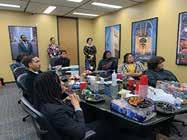
Matthews, Eugene Flynn, and Stephanie Jackson. Members of the Street Law Committee include program co-chairs Pierre Robertson and Kara Vincent, Eric Strocen, Anna Wolfe, Cheyenne Barnard, Colten Kidd, Victoria Groves, and Tami Williams.
Street Law will resume in the Fall at KIPP University Prep High School, and sponsors are needed. Don't hesitate to get in touch with Tami Williams if you want to volunteer or financially support the program in the 23-24 fiscal year.
Volunteers and students listen to Judge Keele.
First Assistant Lora Howard and Judge Keele spent time with the students answering questions and educating them about the skills one needs to be a lawyer and how making good choices in high school and college is imperative to set oneself up for success as an adult and attorney. Judge Keele mentioned the importance of integrity and honesty.
The students worked outside the Street Law class time to prepare themselves and put on an educated and practiced courtroom scenario. The prosecuting team presented their facts confidently, and the witnesses were brilliant and honest in portraying the victims. The defense team zealously defended their client and checked the prosecution when they felt their witness was being treated unfairly. Never during the trial did the students try to present an alternate story line or justify wrong behaviors. Ultimately, Goldie Locks was found guilty of unlawfully and knowingly entering and remaining in a dwelling known as the Three Bears’ House and not guilty of unlawfully and intentionally damaging a chair, the property of Baby Bear.
The Street Law Committee would like to thank these financial program supporters: Graves McLain, Moyers Martin, McAfee & Taft, Ken Underwood, and the TCBF Community Outreach Committee. Another big thank you to those who volunteered for a lesson or the mock trial: Judge Ann Keele, Sgt Ashley Kite, Simon Falokun, Kevinn
Prosecuting Team: Cayden Cato & Keondre West
Judge Keele explains why the rule of law is essential and what skills one needs to be an effective attorney.


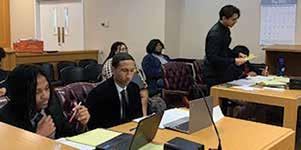





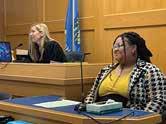
Helton Law Firm has added two new attorneys to the firm.
Chad Neuens joins the firm in an Of Counsel role and brings to the firm decades of experience in business litigation, product liability, construction, banking, transportation, liability, wrongful death, estate, fraud, personal injury, oil and gas and real estate law. Chad has first chaired numerous jury trials in state and federal courts around the country. He is licensed to practice in Oklahoma, Texas, Colorado and several federal courts. Chad is also a mediator named to the Dispute Resolution Consultants panel, working with clients to resolve complex disputes.
Shane Fletcher joins the firm as an associate attorney practicing in the areas of trust and estate litigation, commercial litigation, business collections, personal injury prosecution and defense, construction defects, and estate planning. Shane is licensed to practice in Oklahoma, Arkansas and several federal courts.
By being a member of the TCBA, you are also a member of the Tulsa County Bar Foundation. As a general rule, the funds that come into the Foundation are the result of a fundraising event for our community, and the monies raised are immediately distributed back out into the community through non-profit organizations.
In an effort to assist the Foundation, we have implemented a monthly “Fund the Foundation” program. To participate we are asking each member who has a birthday this month to consider making a donation to the Foundation. You can do so with the QR Code shown here.

If you are not currently a Fellow, please consider joining that program. As a thank you (and let’s be honest, an encouragement to other members), if you donate before the 10th of the month we will include a shout out to you in the next issue of Tulsa Lawyer Magazine.
If you wish to donate or join the Fellows program, please contact Tami Williams at tamiw@tulsabar.com.
Sincerely,
Philip Hixon, TCBA President 2022-2023The Law Firm of Atkinson, Brittingham, Gladd, Fiasco & Edmonds is currently seeking an associate attorney with a minimum of 2 to 5 years of experience in litigation. The associate in this position will be responsible for court appearances, depositions, performing discovery, interviews and trials in active cases filed in the Oklahoma Eastern, Northern, and Western Federal District Courts and Oklahoma Courts statewide. Atkinson, Brittingham, Gladd, Fiasco & Edmonds is primarily a defense litigation firm focusing on general civil trial and appellate practice, insurance defense, medical and legal malpractice, and Native American law. Salary is commensurate with experience.
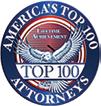
Please provide your resume, references and a cover letter including salary requirements to Carol J. Allen at callen@abg-oklaw.com.
Statewide law firm with offices in Tulsa and Oklahoma City is seeking attorneys for both offices with 3+ years of experience in litigation. Compensation DOE. Excellent benefits, support, and atmosphere to develop your practice. Submit confidential resume, references, writing sample and compensation requirements to OklaLawFirm@gmail.com.

